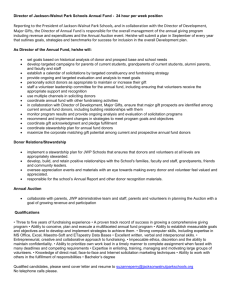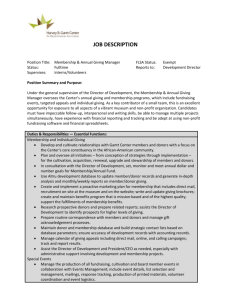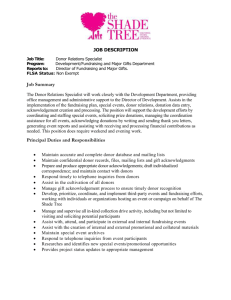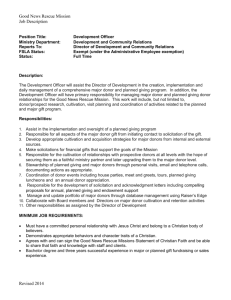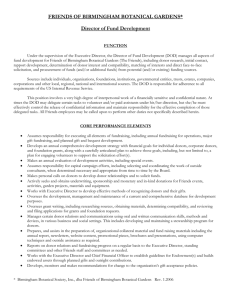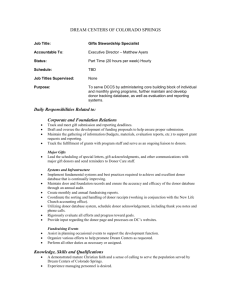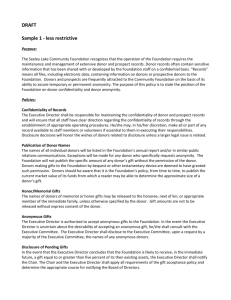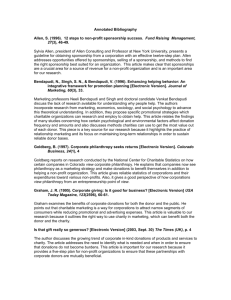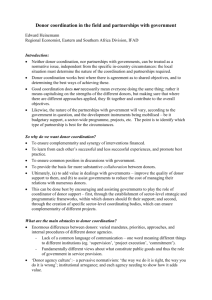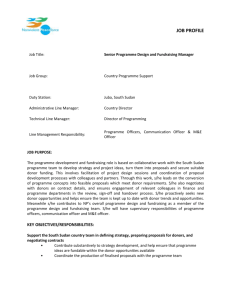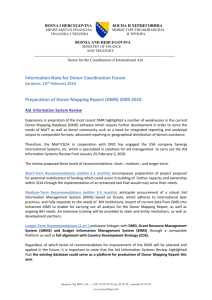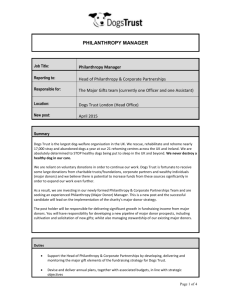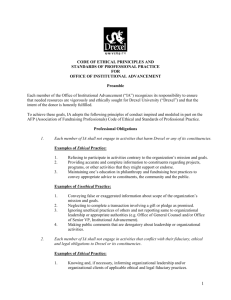Top Ten Ethical Dilemmas
advertisement
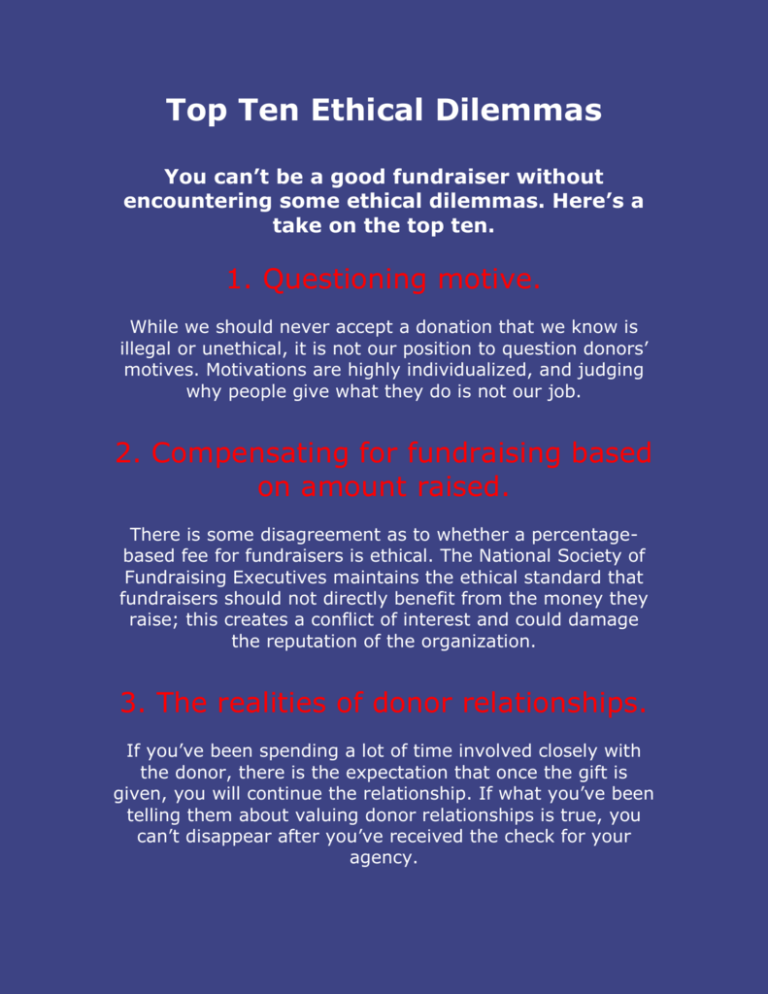
Top Ten Ethical Dilemmas You can’t be a good fundraiser without encountering some ethical dilemmas. Here’s a take on the top ten. 1. Questioning motive. While we should never accept a donation that we know is illegal or unethical, it is not our position to question donors’ motives. Motivations are highly individualized, and judging why people give what they do is not our job. 2. Compensating for fundraising based on amount raised. There is some disagreement as to whether a percentagebased fee for fundraisers is ethical. The National Society of Fundraising Executives maintains the ethical standard that fundraisers should not directly benefit from the money they raise; this creates a conflict of interest and could damage the reputation of the organization. 3. The realities of donor relationships. If you’ve been spending a lot of time involved closely with the donor, there is the expectation that once the gift is given, you will continue the relationship. If what you’ve been telling them about valuing donor relationships is true, you can’t disappear after you’ve received the check for your agency. 4. Promises in the heat of the moment. Caught up in the “ask,” some fundraisers promise donors things they aren’t sure they can deliver. If the donor asks “Will you name the new building after me?”, let the donor know you’ll need the board’s approval. Be honest about your promises, even if it means closing on the gift on another day. 5. Out of your element. Some fundraisers may promise too much and wade into waters that are just too deep for them. Speak about what you know and use your resources and contacts to provide more detailed information. 6. Talking a donor into a gift. This is a grey area. While it may seem that it is a fundraiser’s job to talk donors into giving, we really should focus on trying to get the donor to catch our passion and get enlisted with the cause. If he doesn’t, it may not be the right time, the right program, or the right person. Talking him into anything isn’t the answer. 7. Padding the good. Be careful not to try and oversell your organization or misrepresent what you do. Gushing sometimes works, but it may set off alarm bells in donors’ minds. 8. Be honest with the numbers. A hot topic may be what percentage of every fundraising dollar goes to overhead costs. Be prepared to disclose those numbers to donors. If the percentage is high, something’s wrong, and the donor will surely point it out. 9. Spend the money the way you say you will. Some organizations try to play fast and loose with the money they receive. Better to do what you say you will with the money you receive-and be forthright about it. There will be less mess to clean up later. 10. List selling. Because of the importance of donor lists, lists are big business. Lists are sold, traded, given away. Your board should approve any plans you have for list trading or selling. Similarly, there should be a consensus about where you get your lists. Source: Fundraising for Dummies

